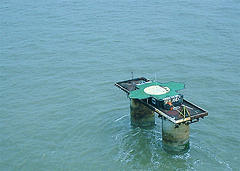Broadband Reports has the scoop about the dominant DSL provider here in South Florida: AT&T To Impose Caps, Overages Notices To Go Out This Week, Capping Begins May 2.
AT&T will be implementing a new 150GB monthly usage cap for all DSL customers and a new 250 GB cap on all U-Verse users starting on May 2. From March 18 to March 31, AT&T users are going to be receiving notices informing them of the change in the company’s terms of service. AT&T spokesman Seth Bloom confirmed the news to Broadband Reports after we initially contacted him last Friday concerning a leaked copy of the upcoming user notification. According to Bloom, the cap will involve overage charges. However, only users who consistently exceed the new caps will have to deal with these charges.
But it seems that AT&T’s usage meters are not real accurate: AT&T Users Already Complaining About Inaccurate Meters because, as IT World reports, AT&T Internet usage billing off by as much as 4,700%.
How does one find out how much bandwidth AT&T thinks we (a family of four with two teenagers) are using? Does this mean I’ll have to switch to (yuk!) Comcast? Wait, they have a cap too, as well as evil politics. Well, how about the number three player in the household DSL market. Wait, there isn’t one, due to Bush administration policies that killed off all the competitors (the evil Brand X decision), policies the Obama crowd hasn’t had the guts to try to change, probably due to an accurate assessment that the incumbents own the legislature on this issue.
I tried logging into myusage.att.com [CORRECTED] to find out what AT&T thinks we are using. It took me a long time to figure out what my login and password were, and when I finally ran the gauntlet, all I got was this message:
AT&T is not able to capture usage data on all of its customers. Customers whose usage is not available for viewing should not be concerned about their usage patterns for billing purposes.
To learn more about how to manage your usage, please visit www.att.com/internet-usage
I presume that means we are not near the caps despite teenage online TV-watching?

